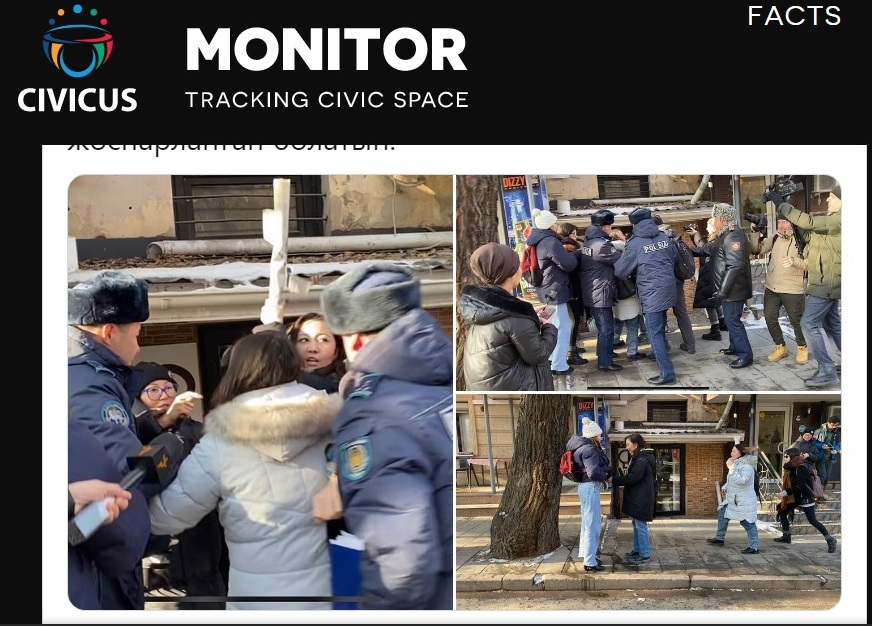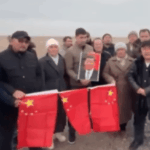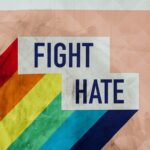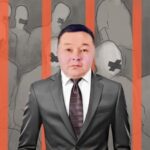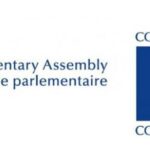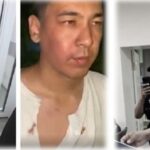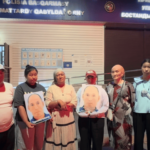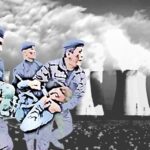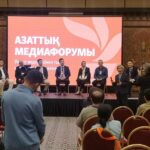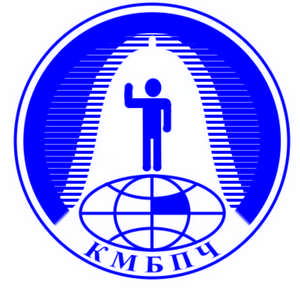INTRODUCTION
This is an update on developments affecting the freedoms of expression, association and peaceful assembly in Kazakhstan from September 2022 to February 2023. It has been prepared by International Partnership for Human Rights (IPHR) and Kazakhstan International Bureau for Human Rights and Rule of Law (KIBHR) as part of their cooperation with the CIVICUS Monitor.
In early presidential elections held in November 2022, President Kassym-Jomart Tokayev was re-elected without being meaningfully challenged, according to the assessment of international observers. As a result, he secured a new seven-year term in office to continue with his proclaimed agenda of creating ‘’a new Kazakhstan’’.
Early parliamentary elections will take place on 19th March 2023 under a new mixed electoral procedure, where most members of parliament will be elected based on party lists as previously, but part of the seats will be filled based on voting in single-mandate districts, with part of the candidates having been self-nominated. Ahead of the parliamentary elections, two new political parties were granted state registration, with a total of seven registered parties running in the elections, including the ruling Amanat party. However, as in previous elections, no opposition party is able to take part as no such party is registered in the country. The difficulty with obtaining registration experienced by opposition parties is illustrated by the case of the Alga Kazakhstan! party whose application documents were repeatedly returned on technical grounds during the reporting period. While the self-registered candidates running in single-mandate districts included some lawyers, civil society activists and journalists, such candidates reported facing various campaigning obstacles and some of them were de-registered on spurious grounds.
A year after the ‘Bloody January’ 2022 events, when the authorities forcefully put down mass protests and evolving unrest, there was still widespread impunity for human rights violations perpetrated in connection with these events, including excessive use of force and related killings, arbitrary detentions, and torture and ill-treatment. As of the beginning of 2023, only a few law enforcement and security offers had been charged and even fewer convicted for their actions during the January 2022 events. Many investigations have been prematurely closed because of the alleged lack of evidence of crimes on the part of officers. In comparison, hundreds of participants in the January 2022 protests have been charged and convicted for various crimes.
In November 2022, the president signed an amnesty law for those prosecuted in relation to the January 2022 events, except for those facing particularly serious charges. While the amnesty law was presented as an act of humanism and reconciliation, human rights defenders were concerned that its implementation might result in some law enforcement and security officers escaping accountability for human rights violations, thereby undermining justice. The amnesty law also granted scope for denying amnesty to some civil society and opposition activists, who are believed to have been charged over the January 2022 events because of their peaceful civic engagement, on the grounds of the nature of the charges against them.
Among the activists prosecuted over the January 2022 protests is Zhanbolat Mamai, the leader of the unregistered opposition Democratic Party, who went on trial in November 2022. After the start of the trial, the prosecution re-initiated charges against him of organising riots after previously reclassifying these charges as organising an unsanctioned assembly, which is a less serious crime. The prosecution has accused Mamai of instigating the unrest which took place in Almaty during the January 2022 events, in an apparent attempt to make him the main scapegoat for the violence and in retaliation for his opposition activities and criticism of those in power. He could face up to ten years in prison if convicted.
During the reporting period, outspoken civil society and opposition activists also faced intimidation and harassment outside the context of the January 2022 events, including criminal charges brought in retaliation for their peaceful civic activities. In a case that human rights defenders believed to be politically motivated, a group of seven activists was detained a few days before the presidential elections for allegedly planning to organise riots and seize power on election day.
A series of threats and attacks against independent media outlets and journalists were reported, which demonstrated the vulnerability of such actors. As the number of attacks peaked in January 2023, President Tokayev called for thorough investigations to identify both those who perpetrated and those who ordered attacks. Police later reported having arrested a group of people accused of involvement in numerous attacks on media and journalists, including a suspected coordinator and his accomplices, and an alleged organiser of the attacks who argued to have acted based on ‘’personal grievances’’ against media outlets and workers. Human rights groups called on authorities to ensure that those arrested are investigated and tried in fair proceedings and that all those responsible for attacks are held accountable and given appropriate penalties.
Media organisations and journalists raised the alarm over a draft media law put forward by the government that if adopted would seriously increase state control over the activities of media. They also objected to the fact that the draft law ignored recommendations made by media and civil society representatives. In response to the criticism, the government promised to revise the law.
The authorities continued to systematically violate the right to freedom of peaceful assembly by selectively denying permission to hold peaceful protests, dispersing protests held without advance permission, and detaining and penalising protesters. Among others, activists were detained in connection with peaceful assemblies held in relation to the Russian and Chinese leaders’ visits to the country, the early presidential elections and the anniversary of the January 2022 events.
These developments are described in more detail below.
GENERAL DEVELOPMENTS
In the aftermath of the January 2022 events, President Tokayev initiated a drive to promote political modernisation and create ‘’a new Kazakhstan’’. As covered before, in June 2022, a constitutional referendum was organised, during which voters approved a set of amendments to the constitution which, among others, reduced the president’s powers in some areas, introduced a new electoral system for parliament and strengthened parliament’s role in certain aspects. Other new legislation has also been initiated as part of the reform drive. Civil society representatives have criticised the limited nature of the reforms and the lack of substantial changes in practice.
When delivering his annual state of the nation address on 1st September 2022, President Tokayev called for holding early presidential and parliamentary elections, saying that this was necessary to ensure the successful implementation of the reforms initiated by him.
In the early presidential elections held on 20th November 2022, President Tokayev was re-elected with over 80 percent of the vote without facing any real competition. Local election monitors documented numerous violations during the presidential elections and an election observation mission deployed by the OSCE Office of Democratic Institutions and Human Rights (ODIHR) issued a critical assessment which, among others, concluded that the election ‘’took place in a political environment lacking competitiveness’’ and that the incumbent ‘’was not meaningfully challenged in a low-key campaign’’. Kazakhstan’s government was not pleased with this assessment. In an official response, the Foreign Ministry claimed that ODIHR’s statement was characterised by ‘’a lack of objectivity’’, contained ‘’unsubstantiated accusations’’ and ‘’called into question’’ ODIHR’s effectiveness as an OSCE institution.
In accordance with newly adopted legal amendments, Tokayev’s new presidential term will be seven years, compared to five previously, but he will not have the right to be re-elected next time. Tokayev was first elected president in June 2019, as a hand-picked successor to ex-President Nursultan Nazarbayev, who stepped down after ruling the country for three decades. Following the January 2022 protests, when protesters expressed resentment about Nazarbayev’s legacy and continued political influence, Tokayev has sought to distance himself from his predecessor and has initiated legislation to limit the influence of the latter and his family.
Early parliamentary elections are scheduled to take place in Kazakhstan on 19th March 2023, when members of the parliament’s lower house will be elected (see also the section on Association below). These elections will also be monitored by an ODIHR mission. In accordance with recent legislation, NGOs wishing to monitor the elections are required to obtain official accreditation, unlike previously, and only those whose statutes stipulate election monitoring as an activity can be accredited. While NGOs expressed concerns about the new requirements when they were initiated, no NGOs are known to have experienced difficulties with obtaining accreditation so far.
PEACEFUL ASSEMBLY
CONTINUED LACK OF ACCOUNTABILITY FOR JANUARY 2022 VIOLATIONS
The reporting period saw the first anniversary of the ‘Bloody January’ events, when peaceful mass protests for social and political change evolved into unrest and clashes between security forces and people in the crowd, with over 230 people killed and several thousand injured. To date the authorities have failed to carry out impartial, thorough and transparent investigations into allegations of serious human rights violations committed by law enforcement and security officials during the January 2022 events, including the use of excessive force, arbitrary detentions, due process violations and torture and ill-treatment, and to take effective measures to bring those responsible to justice.
While hundreds of participants in the January 2022 protests have been charged and convicted for various criminal offences – ranging from theft and property damage to mass riots and terrorism related offences, only a few law enforcement and security officials have been charged and even fewer convicted for violations of the rights of protesters and other individuals during these events.
As highlighted in a January 2023 report published by IPHR, KIBHR and Kazakhstan’s NGO Coalition against Torture, together with the World Organisation against Torture (OMCT), the authorities have in particular failed to ensure accountability for widespread allegations of torture and ill-treatment of people detained during the January 2022 protests, as a result of which at least six people died in detention.
The authorities have acknowledged the use of torture and ill-treatment against detainees during the January 2022 events and have opened investigations into complaints filed by people alleging to have been subjected to such treatment. However, many investigations into complaints of torture have been prematurely closed because of the alleged lack of evidence of crimes. As of late December 2022, the investigations into 104 out of 190 torture complaints, which the NGO Coalition against Torture had processed, had been closed on such grounds. The same pattern is confirmed by official figures. In early January 2023, Olzhas Bektenov, the head of the Anti-Corruption Agency – the state body which has had main responsibility for investigating torture allegations – stated that his agency had investigated a total of 432 complaints of prohibited treatment relating to the January 2022 events and that 347 cases had been closed due to the alleged lack of evidence of crimes. He also claimed that complaints about torture ‘’in most cases were filed in order to avoid criminal liability for unlawful actions’’, thus suggesting that the complaints were not filed in good faith.
As of the beginning of February 2023, convictions had only been handed down in two cases involving law enforcement officials charged with the use of torture during the January 2022 events:
On 16th January 2023, an Almaty court sentenced two police officers to three years in prison for torture (under Criminal Code article 146), while a third officer was given a non-custodial restricted freedom sentence of 1,5 years for inaction during service (under Criminal Code article 370). The victim in the case, Timur Radchenko, was detained when stopped in his car at a police block post on 8th January 2022 and taken to a local police station, where he was reportedly beaten and told that ‘’this is for ours’’. The court concluded that the first two police officers assumed that Radchenko had been involved in riots and tortured him out of revenge for the harm suffered by their colleagues during the law enforcement operations to quash the mass protests and unrest. The third officer was convicted for failing to inform his superiors about Radchenko’s treatment. Unlike in many other cases of abuse of people detained during the January events, Radchenko’s beating was caught on surveillance camera, with the footage being used as the main evidence during the trial.
On 10th February 2023, a local court in the city of Taldykorgan in Zhetysu region issued its verdict in a case involving five law enforcement officials charged with torturing more than 20 people detained during the January 2022 events. The officials were accused, among others, of using torture methods such as applying a hot iron to detainees, pulling out their teeth and raping them with a truncheon. The court found all five defendants guilty of torture (under Criminal Code article 146), but despite the serious nature of the alleged torture it issued comparatively lenient sentences: two of the defendants were each given four-year prison sentences, while three of them received three-year sentences. According to one of the lawyers representing victims, they planned to appeal the verdict. In the course of the trial, which began in August 2022, IPHR, KIBHR, the Coalition against Torture and the OMCT raised concerns about procedural violations, and lawyers from the Coalition against Torture who defended victims were subjected to pressure.
The number of torture complaints received by authorities is believed to constitute only a fraction of all cases of abusive treatment against those rounded up during the January 2022 events. Many victims of torture and ill-treatment among the around 10,000 people detained have been reluctant to file complaints about their experiences for fear of reprisals and the lack of confidence in obtaining justice.
The authorities have also failed to take effective measures to investigate and ensure accountability for the killing of protesters, activists and passers-by during the January 2022 events. According to information provided by authorities, more than 200 criminal investigations were opened in cases where people died during these events. However, many investigations have reportedly been closed on the grounds that the actions of law enforcement officers involved did not constitute a crime.
The decision to close the investigation in this case prompted particular outrage:
Four-year-old Aikorkem Meldekhan died when her family’s car came under fire in Almaty on 7th January 2022 as they were on their way to a grocery store. Aikorkem became a symbol of the peaceful residents who suffered from the harsh measures used by security forces during the January 2022 events. A forensic investigation concluded that the bullets that hit the car came from firearms used by the military. However, in early January 2023, Aikorkem’s father learned that the criminal case concerning his daughter’s death had been closed as “no elements of a crime being committed” had been found. He filed a complaint against this decision, after which the investigation was re-opened. In February 2023, Aikorkem’s father told media that the case would soon be handed over to court, involving one suspect: the commander who ordered the shooting which hit the car in which his daughter was travelling. The commander was facing charges of abuse of power (under Criminal Code article 451) rather than murder (Criminal Code article 99), under which the case was initially investigated. Aikorkem’s father expressed regret that only one official would be tried over his daughter’s death, and on these lesser charges. The case material concerning the requalification of the charges has reportedly been classified so Aikorkem’s family and lawyer do not have access to them. Aikorkem’s father has previously reported being pressured by security officials to refrain from talking to journalists or making public statements about his family’s ordeal.
During the reporting period, only one conviction was handed down over a killing of a civilian related to the January 2022 events, in a case where the victim was not a protester:
In November 2022, a local military court sentenced military officer Mark Zlunyaev to six years in prison for ‘’abuse of power’’ in relation to the death of Ernazar Krykbaev, a shepherd, who was shot and killed near a military unit located on the outskirts of the city of Taldykorgan in Almaty region on 5th January 2022. The ruling was upheld unchanged by an appeals military court in mid-January 2023.
In several cases, people killed during the January 2022 events have been charged and convicted posthumously, although the circumstances of their deaths have not been clarified. This is one example of such a case:
On 1st December 2022, a local court in the Zambyl region issued a conviction against 17-year-old Andrey Opushiev, who was shot and killed in the city of Taraz during the January 2022 events. When Opushiev did not return home on 6th January 2022, his family started looking for him and eventually found his corpse in a morgue, reportedly with a gunshot wound in the heart area, and with one of his legs, three of his ribs, his jaw, his teeth and his fingers broken.
The court found Opushiev guilty of participating in mass riots “accompanied by violence, pogroms and destruction of property’’ in the centre of Taraz. According to Opushiev’s mother, no substantial evidence to prove her son’s guilt was presented during the trial. Video materials presented by the investigation only showed him standing in a peaceful crowd of people at the city square and running away from gunshots. Opushiev’s mother did not believe the official version of events and demanded that the police identify and hold accountable the one(s) who killed her son. The family appealed Opushiev’s conviction but in January 2023, it was upheld by an appeals court.
In addition to his parents and siblings, Opushiev was survived by his young wife and his son, who was born shortly after his death.
In an initiative described as an act of humanism and reconciliation, President Tokayev announced amnesty for people charged with criminal offences in relation to the January 2022 events during his state of the nation address on 1st September 2022. Two months later, on 2nd November 2022, the president signed the corresponding law. According to the amnesty law, those charged with crimes of minor and medium gravity might be cleared of charges and freed from penalty, while those charged with more serious crimes might have their sentences reduced. However, people charged with certain serious crimes such as terrorism, extremism and the organisation of riots are not eligible for amnesty. In addition to protest participants, the amnesty law also affects law enforcement and military officials charged in relation to the January events, except officials charged with particularly serious crimes such as torture and intentional murder. According to official information, the amnesty law was expected to benefit around 1,500 people in total, with courts deciding on its application in individual cases.
While the idea of amnesty was welcomed, human rights defenders expressed concerns that the implementation of the adopted amnesty law might allow law enforcement and security officials guilty of human rights violations related to the January 2022 events to escape responsibility, if charges initiated against them concern crimes subject to amnesty or if the charges are reclassified into such crimes. HRDs also voiced concern that some civil society and opposition activists believed to have been charged over the January events because of their peaceful and legitimate activities (see more under Association) would not be able to qualify for amnesty because they have been charged with crimes that are exempted from the scope of the law (such as the organisation of riots or extremism-related offences).
ONGOING VIOLATIONS OF THE RIGHTS OF PROTESTERS
The authorities continued to systematically violate the right to freedom of peaceful assembly. As covered before, the law on assemblies adopted in 2020 de-facto requires organisers of assemblies to obtain advance permission from local authorities, although it formally provides for a notification procedure. According to KIBHR’s monitoring, during the reporting period, less than a dozen assemblies took place with official permission across the country while many more requests to hold protests were rejected, especially – but not only – when the proposed topics concerned issues perceived as sensitive by those in power. When issuing rejections, local authorities typically argued that other events had already been planned to take place at the proposed times and venues. However, in violation of the law of assemblies, they failed – as a rule – to propose any alternative venues or any alternative times for the gatherings.
In a well-known practice, small-scale peaceful protests held without advance permission continued to be dispersed by police, with participants being detained – often with the use of disproportionate force – and in many cases subsequently penalised for allegedly violating the rules for holding assemblies. Law enforcement authorities also continued to detain well-known civil society and opposition activists to prevent them from taking part in planned or potential protests.
Below are examples of cases in which the right to peaceful assembly was violated during the reporting period, based on KIBHR’s monitoring and media reports.
In several cases, civil society activists were detained when attempting to hold peaceful protests in connection with visits of foreign leaders to the country:
On 11th September 2022, a few days before an official visit of China’s leader Xi Jinping to Kazakhstan, a small group of civil society activists attempted to hold a picket outside the Chinese embassy in the capital to protest against violations of the rights of ethnic minorities in China’s Xinjiang region. When they arrived at the embassy, activists Dinara Mubarak, Kairat Seytkaliev, Balzhan Zhanash and Sandugash Kantarbayeva were detained by a special police force and placed in a police vehicle in a harsh manner. According to Mubarak, one of the police officers hit her several times on different parts of her body as she was trying to make a call from the police van. As Kairat Seytkaliev attempted to protect her, he was also beaten. The activists were taken to a local police station, where they were questioned before being released.
Two other activists, Baibolat Kunbolatuly and Akikat Kaliolla, who have frequently participated in peaceful protests against China’s repressive policies in the Xinjiang region, were detained by police in Almaty on 10th September 2022. Based on a decision issued by a local court, they were locked up for 15 days on charges of repeatedly violating the rules for holding assemblies. Thus, they were effectively silenced during the Chinese leader’s visit on 14th September 2022.
On 12th October 2022, in connection with Russian President Vladimir Putin’s visit to Kazakhstan, a group of civil society activists planned to hold a picket outside the Russian consulate in Almaty to call for an end to Russia’s war against Ukraine. However, a police squad prevented the activists from getting close to the consulate and detained several of them with the use of force. After being held for a few hours, those detained were released without charge.
A series of detentions and pre-emptive detentions of protesters were carried out in connection with the presidential elections held on 20th November 2022:
On 6th October 2022, a group of activists from the unregistered Democratic Party gathered outside the office of the ruling Amanat party in Almaty to protest against the announced snap elections and to call for the release of political prisoners, including party leader Zhanbolat Mamai (see more on his case under Association). Activists Aruzhan Duysebayeva, Gulnar Mirmambetova, Sharbat Apai, Anar Mukhamedzhanova and Azerbay Aga were all detained and subsequently handed fines ranging from 60 to 200 EUR by a local court on charges of violating the rules for holding assemblies. The same day as the protest took place, the ruling party held a congress in the capital, where it endorsed incumbent President Tokayev as its candidate in the presidential elections.
On 14th November 2022, police in Astana detained six members of the initiative group for the registration of the opposition party Alga Kazakhstan! (see more on this group under Association) for the apparent purpose of preventing them from protesting during the elections. Those apprehended include Marat Zhylanbayev (a famous marathon runner), Venera Zhanbayeva, Sandugash Kantarbayeva, Semigul Oshakbayeva, Mereke Nugmanov and Marat Musabayev. On the same day, a local court ruled each of them to be locked up for 15 days for allegedly violating the rules for organising assemblies when holding a small peaceful protest during the Kazakhstan visit of a European Parliament delegation in August 2022. The sentence was later replaced with a fine in the case of Semigul Oshakbayeva.
On election day on 20th November 2022, police detained more than a dozen participants in small, peaceful protests held by the unregistered Democratic Party and the Oyan, Qazaqstan movement in Almaty to express discontent with the unfair nature of the elections. They were released after a few hours. Supporters of the banned Democratic Choice of Kazakhstan movement were prevented from gathering altogether. In the capital Astana and other cities, police also carried out ‘’preventive’’ detentions of potential protest participants. According to information provided by the ministry of interior, as of the evening of 20th November, administrative cases had been initiated against 19 people because they had allegedly called for or had taken part in protests held without advance permission.
On 22nd November 2022, activist Zhadyra Dosekeyeva staged a peaceful protest against the outcome of the presidential elections in the centre of the city of Zhanaozen. She held up a poster calling re-elected President Tokayev a ‘’criminal’’ and a ‘’murderer’’. Police detained Dosekeyeva, who reportedly was subsequently fined the equivalent of around 300 EUR on charges of violating the rules for holding assemblies, failing to obey the orders of police and involving an under-age individual in the commitment of an administrative offence (because her daughter was present at her protest).
Following the elections, new violations of the right to freedom of peaceful assembly were reported, such as in the following cases:
On 16th December 2022, when Kazakhstan’s Independence Day was celebrated, 14 activists from the Oyan, Qazaqstan movement were detained on their way to Republic Square in Almaty for a planned gathering in memory of the victims of government crackdowns on protesters, including during the Zhanaozen events in 2011 and the January 2022 events. The activists were released after being held for a few hours. However, police reportedly held their homes under guard and prevented them from going anywhere on both 16th and 17th December.
On 5th January 2023, on the occasion of the first anniversary of the January 2022 events, an unofficial gathering to commemorate the victims of these events was held at Republic Square in Almaty. Of around 100 participants, most were activists. According to media reports, a large police presence was observed in the vicinity of the square and mobile internet appeared to have been blocked – a measure also seen in connection with previous peaceful assemblies in the city. While the gathering largely took place without police interference, three activists from the unregistered opposition Democratic Party, including Aruzhan Duysebayeva, Gulnar Mirmambetova and Abzal Dostiyarov were ‘’preventively’’ detained ahead of it. Dostiyarov was reportedly detained as he was leaving his apartment together with his four-year-old daughter, whom he was planning to take to the kindergarten before going to the gathering. The girl spent an hour in the police station together with her father before being picked up by her mother. The three activists were eventually released without charge after being held for a few hours.
The mayor’s office in the capital, Astana, refused to give permission for a peaceful protest against a controversial draft media law (see more under Expression), planned to be held by media and civil society representatives on 18th February 2023. The mayor’s office claimed that other events had already been agreed for the planned venue at the same time. However, the organisers later noticed that the proposed venue was empty at the time of the planned protest. In violation of its obligations under the law on assemblies, the mayor’s office also failed to propose any alternative venue or time for the protest.
The mayor’s office in Almaty repeatedly refused to approve a gathering that women and feminist activists planned to hold on International Women’s Day on 8th March 2023, on the grounds that all venues designated for holding assemblies had allegedly already been reserved for events organised by a group associated with local authorities. Following protests and a complaint to court by the activists, in mid-February 2023, local authorities finally gave the green light for holding a rally on International Women’s Day. However, it was approved for Gandhi Park, which is a less centrally located venue than requested, and a march the activists planned to be held in connection with the rally was not sanctioned.
EXPRESSION
ATTACKS ON MEDIA AND JOURNALISTS
During the reporting period, there were a growing number of incidents of intimidation and harassment targeting independent outlets and journalists.
The office of the independent, Almaty-based Elmedia online information source was attacked six times from October 2022 to January 2023 by unknown perpetrators who smashed the windows at the entrance of the building where the office is located. The outlet’s chief editor, veteran journalist Gulzhan Yergalieva and her team have also been subjected to social media and telephone harassment, false bomb threats and other acts of intimidation.
The independent Orda news outlet, based in Almaty, reported repeated attacks on its website as well as several other acts of intimidation. In October 2022, a parcel was delivered to the outlet’s office containing a pig’s head, which had a torn-up photo of the outlet’s chief editor Gulnara Bazhkenova in its mouth. Threatening messages were also left outside the office. In another incident, in December 2022, Bazhkenova received a tombstone in the mail featuring her name, photo and a fictious date of death.
In January 2023, the website of the independent news site Ulysmedia, based in the capital, was hacked and personal information about its chief editor Samal Ibrayeva and her children was posted online. In another incident that appeared aimed at intimidating Ibrayeva and her team, a parcel was delivered to Ulysmedia’s office in early February 2023 containing a piece of meat with a photo of Ibrayeva’s children lying below it. Prior to these incidents, Ulysmedia’s site had repeatedly been the target of distributed denial-of-service (DDoS) attacks.
The car of Independent journalist Dinara Yegeubayeva was set on fire near her home in Almaty in January 2023 in what she believed was an attempt to blow up the car. Earlier, in November 2022, unknown perpetrators slashed the tyres of her car and glued the windshield wipers and lock. In a third incident, the journalist reported in early February 2023 that her son had been approached and threatened by an unknown person armed with a pistol before managing to escape. Yegeubayeva has linked all these incidents to her professional activities. She has prominently covered human rights abuses related to the January 2022 events on her social media accounts and in December 2022 she announced the creation of a new political movement with plans to field candidates in the parliamentary elections in spring.
On 19th January 2023, unknown perpetrators applied construction foam around the door of journalist Vadim Boreiko’s apartment in Almaty. The journalist said that the foam smelled of fuel, making him suspect that the perpetrators might have planned to set the door on fire after blocking it. The perpetrators ran off when neighbours saw them. The perpetrators also sprayed the name of Boreiko’s YouTube channel on the entrance door to the building where his apartment is located. On his YouTube channel, the journalist has covered issues sensitive to the authorities such as the January 2022 protests and Russia’s war in Ukraine. Later, in February 2023, Boreiko reported that unknown perpetrators had blown up two cars belonging to his operator at night.
On 22nd February 2023, journalist Daniyar Moldabekov reported being attacked by an unknown perpetrator as he was entering his house in Almaty. According to him, the perpetrator, who wore a medical mask, hit him in the face while using obscene language. Moldabekov noted that the perpetrator did not attempt to take anything from him and suggested that the attack was linked to critical material he has published.
The perpetrators of acts of intimidation and harassment against media outlets and journalists, particularly those orchestrating and ordering such attacks, go unpunished. It was therefore welcome that a spokesperson for President Tokayev publicly stated on 20th January 2023 that the president had ordered a “thorough investigation” into the recent series of attacks, saying that “not only the perpetrators, but also those who ordered these illegal acts” must be identified. The EU delegation also issued a statement about these attacks, stressing that ‘’All cases must be investigated and those responsible for these wrongdoings should be brought to justice.’’
In February 2023, the police announced that a total of 18 people had been arrested on suspicion of involvement in unlawful acts against journalists taking place since September 2022, with investigations in these cases being under way. Later the same month, the police reported that a professional hacker had been arrested on suspicion of coordinating attacks against media and journalists for the purpose of ‘’discrediting’’ President Tokayev and his ‘’democratic reforms’’. Four of the hacker’s accomplices were also identified. In yet a further development, the police reported that an individual suspected of organising the recent attacks had been arrested and charged with multiple crimes. He had allegedly been driven by ‘’personal grievances’’ against media outlets and journalists – thus a different motive than that of the suspected coordinator — and had allegedly acted on his own initiative. IPHR and KIBHR called on the authorities to ensure that the investigations and legal proceedings against arrested suspects fully correspond to international due process and fair trial standards and that all those responsible for attacks are brought to justice and given appropriate penalties.
DRAFT MEDIA LAW
In another worrying development, a new controversial draft media law was put up for public discussion by the government in early February 2023. Media organisations and journalists voiced concerns that it would seriously increase state control over the activities of media if adopted. They also criticised the fact that the draft law was introduced in a way that side-stepped the activities of a government working group, including NGO representatives and journalists, which has been discussing new draft media legislation for several months, and thereby ignored recommendations made by civil society members of this group.
Among others, the draft media law included controversial provisions to designate internet resources as media outlets, thereby extending the law’s scope beyond traditional media outlets; to introduce a registry of accredited journalists while setting out broad grounds for denying accreditation; and to impose extensive restrictions on the work of media and journalists in ‘’exceptional circumstances’’, including through a requirement for articles to be approved by relevant officials before publication in such situations, which could result in censorship. The draft law also did not define any statute of limitations for initiating defamation lawsuits over journalistic materials, which could result in journalists being sued over articles years after their publication.
Following an outpouring of criticism, which included an appeal to the president signed by a large number of journalists and media representatives, the ministry of information indicated readiness to revise the draft law and take into account the feedback received.
ASSOCIATION
OBSTRUCTION OF THE REGISTRATION OF OPPOSITION PARTIES
As part of his post-January 2022 initiative to promote political modernisation and create ‘’a new Kazakhstan’’, President Tokayev pledged to make it easier for political parties to obtain compulsory state registration. The legal requirement regarding the number of members or supporters needed for the registration of a political party was subsequently reduced, and during the reporting period two new parties were granted registration: the green party Baytak and the Respublica party, allowing them to take part in the March 2023 parliamentary elections. However, neither these nor any of the previously registered parties challenged those in power and, as previously, opposition parties faced difficulties with obtaining registration. For example, the Ministry of Justice again repeatedly returned the application document of the opposition party Alga Kazakhstan! (“Forward Kazakhstan!”) because of alleged inconsistencies with the technical requirements for the registration of political parties. In February 2023, the group reportedly applied for registration for the 11th time, after having its application documents returned each previous time when attempting to register since April 2022.
In accordance with constitutional amendments approved at the June 2022 referendum, the March 2023 parliamentary elections will be held under a new a mixed electoral procedure, where 70 percent of the members of the lower house of parliament (Mazhilis) will be elected based on party lists, and 30 percent from single-mandate constituencies. According to official information, a total of 435 candidates were approved to run in single-mandate constituencies, out of which 76 had been nominated by political parties and 359 were self-nominated. The registered self-nominated candidates included some lawyers, civil society activists and journalists. This was welcome; however, independent candidates reported facing various obstacles in their campaigning and struggled to gain visibility during a campaign dominated by those connected to the political establishment. In addition, there were reports that independent candidates were de-registered on spurious grounds.
CRIMINAL CASES AGAINST ACTIVISTS
During the reporting period, persecution of civil society and opposition activists continued, with activists being subjected to intimidation and harassment ranging from threats and surveillance to detention and politically motivated prosecution.
As previously covered, more than 30 criminal cases related to the January 2022 events were initiated against activists on rioting (under Criminal Code article 272) and other charges despite the lack of evidence of their involvement in violent, unlawful actions. In several cases, activists were charged with ‘’knowingly spreading false information’’ under a vaguely worded Criminal Code provision (article 274) which has repeatedly been used to stifle legitimate free speech. While the criminal cases against some activists had been closed, and some activists were granted amnesty, others were serving sentences issued against them or were still under investigation as of early 2023.
The most high-profile case of an activist charged over the January 2022 protests is that of Zhanbolat Mamai, the leader of the unregistered opposition Democratic Party:
As covered before, in June 2022, Mamai was charged with organising riots and spreading false information during the January events because of a peaceful protest held by his party in Almaty in 4th January 2022. These charges came on top of charges of spreading false information and insulting law enforcement officers, which had previously been initiated against him for his campaigning and protests against government policies. Before the case against Mamai was handed over to court in late October 2022, the charges relating to January events were reclassified as violating the rules for organising an assembly (under Criminal Code article 400), which is a less serious crime. In addition, on 2nd November 2022, Mamai was released from pre-trial detention – where he had been held since March 2022 – and placed under house arrest instead. These steps came amid heightened international attention on Mamai’s case, including through a visit to Kazakhstan by EU Council President Charles Michel and the launch in the UK of a non-governmental commission of inquiry into his case with the participation of several MPs. The trial against Mamai began on 7th November 2022. While the trial had already been under way for a while, in January 2023, the prosecutor re-initiated the charges of organising riots, portraying Mamai as the main instigator of the unrest seen in Almaty during the January events without presenting any credible evidence to back up these accusations. If convicted on these charges, Mamai could be sentenced to up to ten years in prison.
Human rights groups have denounced the case against Mamai as politically motivated retaliation for his opposition activities and his criticism of those in power. In a joint statement issued in June 2022, IPHR, KIBHR and partners called on the Kazakhstani authorities to stop persecuting the opposition leader, drop the charges against him and release him. Mamai’s co-activists from the Democratic Party, including his wife Inga Imanbai have also been subjected to ongoing intimidation and harassment, including by being summoned and threatened with criminal charges.
These are updates on the cases against some other activists charged over the January 2022 events:
In December 2022, the prosecutor’s office in the Abai region issued a decision to close the criminal case initiated against Raigul Sadyrbayeva and several other activists charged over the January 2022 events. As covered before, Semey-based Sadyrbayeva was detained during the January protests and accused of participating in mass riots and attacking property, in apparent retaliation for her human rights and civil society activities. After being held in detention for more than two months on these charges, she was transferred to house arrest in mid-March 2022.
The criminal case against another Semey-based activist, Kenzhebek Sultanbekov, was still under way at the beginning of 2023, with his pre-trial detention having been replaced with an order not to leave his home city without permission. Sultanbekov was detained and charged with participating in riots and attacking public property or means of communication during the January protests, although he is not known to have committed any violent or unlawful actions but instead attempted to calm down other protesters and called on them to behave peacefully as the protests evolved into clashes with security forces. Both Raigul Sadyrbayeva and Kenzhebek Sultanbekov were allegedly subjected to torture and ill-treatment while in detention – abuse for which no law enforcement officials were held accountable during the reporting period.
In November 2022, a local court in the city of Shymkent ruled to release activist Kairat Sultanbek from prison under the amnesty law relating to the January events. Previously, in July 2022, Sultanbek and his co-activists Lyazzat Dosmambetova and Zhanmurat Ashtaev had all been given three-year prison sentences for participating in riots during the January events, although the prosecution failed to provide any compelling evidence to support the charges against the activists, and they all insisted that they had only protested peacefully. On appeal, Dosmambetova’s sentence was postponed for two years given her family situation, as a result of which she was temporarily released in September 2022. Similar to Sultanbek, Dosmambetova and Ashtaev also applied to a local court for amnesty. However, their requests were rejected on the grounds that they had previously been convicted of participation in a banned ‘’extremist’’ organisation and handed non-custodial restricted freedom sentences because of their involvement in the Street Party movement, an opposition movement that has been banned in Kazakhstan despite its non-violent agenda. According to the wording of the amnesty law, it does not extend to individuals convicted of repeat offences or of ‘’extremist’’ offences.
In October 2022, Kostanay-based activist Dias Nurmagambetov was granted parole and freed from serving the remainder of a one-year sentence of restricted freedom, which he was given after being found guilty of ‘’knowingly spreading false information’’ during the January 2022 events. As covered before, he was accused of posting messages on the Telegram channel ‘’Protest Kostanay’’ calling on people to participate in unsanctioned protests and incorrectly suggesting that police were taking the side of protestors. He was convicted in June 2022, with his sentence being upheld on appeal in August 2022. However, when considering his appeal, the Kostanay Regional Court faulted law enforcement authorities for failing to properly investigate his allegations of being tortured in detention, due to which he withdrew his initial confession. The restricted freedom sentence handed to him entailed court-imposed restrictions on his movement and activities.
Activists Erkin Kaziev and Aydar Mubarakov have been criminally charged because of an art performance held during the January 2022 events. During this performance, which took place in the city of Kaskelen in Almaty region on 4th January 2022, a group of seven co-activists chained themselves to a large cage on wheels and shouted slogans such as ‘’We support Zhanaozen’’, ‘’Kazakhstan is a large prison’’, and ‘’Freedom for political prisoners’’. The activists were stopped by police, who cut open their chains with the help of special scissors and used tear gas against them, reportedly after Kaziev sprayed water on the police using a toy water gun. Kaziev was subsequently charged with the serious crime of using violence against a representative of the authorities (under Criminal Code article 380) because of this action. In October 2022, he was placed in pre-trial detention, with an additional charge of involvement in a banned ‘’extremist’’ organisation (under Criminal Code article 405) added because of his alleged support for the banned opposition Democratic Choice of Kazakhstan movement. Previously, in 2019, he was sentenced to one year of restricted freedom under this second provision, which has been widely used against activists in retaliation for their peaceful protests and civic engagement.In late December 2022, Aydar Mubarakov learned that a criminal case had also been opened against him on charges of using violence against a representative of the authorities during the January 2022 art performance, more than 11 months after it took place.
In addition, outside the context of the January 2022 events, the authorities continued to target supporters and alleged supporters of the banned opposition movements Democratic Choice of Kazakhstan and the Street Party (Koshe Partiyasy) because of their peaceful civic activities. This is one example:
On 24th January 2023, a local court in the Turkestan region convicted Murat Baidauletov of involvement in a banned ‘’extremist’’ organisation (under Criminal Code article 405) and gave him a one-year restricted freedom sentence, a three-year ban on engaging in public and political activities, and 100 hours of public labour. He was charged because of several videos posted on his Facebook page in which he made calls such as for the imposition of sanctions against Kazakhstan’s current and former presidents, ’’radical’’ measures against those guilty of corruption, the introduction of a parliamentary system of governance, and allowing the Democratic Choice and Street Party to take part in elections. The activist stated that he only peacefully expressed his opinions on these matters, which was also the conclusion of an independent expert assessment requested by the defence. Baidauletov has repeatedly been penalised for his participation in peaceful, unsanctioned protests and was also previously convicted in 2020 on charges of involvement in an ‘’extremist’’ organisation because of a Facebook live stream in which he expressed support for the programmes of the Democratic Choice of Kazakhstan and the Street Party. At that time, he was given a similar sentence of one year of restricted freedom and 100 hours of public labour.
In the following case, alleged supporters of the Democratic Choice of Kazakhstan and Street Party faced more serious charges:
A few days before the early presidential elections on 20th November 2022, security services claimed to have foiled the activities of a group planning to organise riots with the aim of seizing power on election day. During a special security operation, seven alleged members of this group were detained. According to the security services, those apprehended were members of the Democratic Choice of Kazakhstan and the Street Party and ‘’sympathised with’’ and ‘’held similar views’’ to Mukhtar Ablyazov, a prominent government opponent living in self-imposed exile who initially founded the Democratic Choice movement. The detained activists were subsequently charged with preparing riots and publicly calling for the seizure of power (under Criminal Code articles 179, 272 and 24) and placed in pre-trial detention pending further investigation. However, the authorities have failed to present any tenable evidence to back up the charges against the activists and Kazakhstani human rights defenders have deemed the case against them to be politically motivated and included them on a regularly updated list of political prisoners.
Another issue of ongoing concern was the use of charges of ‘’knowingly spreading false information’’ against activists and other outspoken individuals. Figures quoted by General Prosecutor Berik Asylov in November 2022 reinforced concerns about the increasingly frequent application of this vaguely worded criminal code provision. According to him, 100 investigations were opened on charges of ‘’knowingly spreading false information’’ during the first nine months of 2022. Out of these, seven cases had been submitted to court, 19 were still under investigation, 28 had been suspended and 46 closed.
This is one example of a case in which an activist was convicted under this provision during the reporting period:
Zhanylsyn Dzhalgasova, an Atyray-based activist from the initiative group for the creation of the opposition Alga Kazakhstan party, was charged with knowingly spreading false information because of a video she posted on Facebook on 2nd July 2022. In this video, she commented on rumours circulating on social media about the deployment of Kazakhstani troops to help put down protests in Karakalpakstan in neighbouring Uzbekistan, where mass protests against proposed constitutional changes were taking place. She called on fellow citizens to protest against this initiative. In a ruling handed down in November 2022, the court found her guilty and sentenced her to one year of restricted freedom and 100 hours of public labour.
Some activists continued to serve prison sentences handed down in earlier years on charges considered to be in retaliation for their civic engagement and criticism of authorities. These are two of them:
Ermek Narymbaev was arrested in February 2022 upon his return to Kazakhstan from Ukraine where he fled in 2016 to avoid persecution. He was ordered to serve the remainder of a three-year prison sentence, which he was given before fleeing the country in 2016 on charges of inciting national hatred, under another broadly worded Criminal Code provision (article 174), used to restrict freedom of expression in violation of international standards. The charges related to a text he shared on Facebook which was supposedly “offensive” to the Kazakh people. However, as stressed by IPHR and KIBHR in a joint statement issued at the time, the real reason behind the charges was believed to be his vocal criticism of the authorities and his civic engagement. In December 2022, a local court rejected a request from Narymbaev to grant him release on parole or replace his prison sentence with a fine. This decision was upheld by a regional court on appeal.
Following a trial marred by procedural violations, Erzhan Elshibaev was sentenced to five years in prison in October 2019 for allegedly inflicting serious bodily harm on another person during a fight (under Criminal Code article 106). These charges were believed to have been initiated in retaliation for his civic engagement, in particular his advocacy for the rights of the unemployed and a series of peaceful rallies he organised to this end in the city of Zhanaozen in the oil- and gas-rich Mangystau region. Both Kazakhstani and international human rights groups have called for his release and the UN Working Group on Arbitrary Detentions has found his detention to be in violation of international law. Elshibaev has repeatedly reported being subjected to pressure by prison officials and has engaged in self-harming behaviour to protest against such treatment: in August 2020, he sewed his mouth shut; in July 2021, he cut himself in the stomach; and in March 2022, he attempted to commit suicide and had to be hospitalised. In September 2022, a local court in Kyzylorda, where the prison where Elshibaev was held at the time is located, reportedly added seven years to his prison sentence based on a complaint from the prison administration, which accused him of disobeying the orders of prison officials and encouraging other prisoners to do the same (under Criminal Code article 428). The activist said that he was being punished for speaking up against unlawful actions of prison officials. The decision was upheld on appeal and in December 2022, he was reportedly transferred to a different prison facility.


